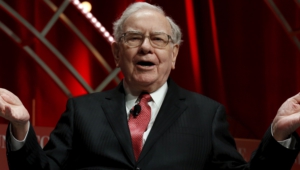Here are some highlights (what I think are highlights, others may focus on other items) from Buffet’s usually iconic annual letter to shareholders.
Last year was an eventful one for Warren Buffet. A succession plan may be in the process of being implemented as two individuals were promoted to vice chairman in January 2018. Natural disasters harmed the insurance business. Plus, perhaps most importantly especially for the economy at large, Buffet joined with Amazon and Chase to start a health care program for employees.
The new tax reform bill passed by congress helped Berkshire Hathaway in the last part of 2017 increasing both capital gains and book value. The increase in book value (23%) resulted in Berkshire performing slightly perform better than the S&P 500 for 2017. Despite this help from the new tax bill, Buffet doesn’t really say whether or not it is good for business.
I used to work in strategy and M&A at Kraft and follow what is going on there. Kraft Heinz, the current incarnation of the company, is somewhat struggling after Buffett and 3G Capital purchased the company. The PEG 3G is famous (infamous) for cost cutting and layoffs, which I’ve heard is what is going on there now. I know several highly qualified employees from Kraft that have been laid off. Kraft has been trying for decades to figure out how to solve its growth problems and unlock shareholder value. There has been a series of management teams that are inevitably replaced when they can’t solve the puzzle. I will write more on the dynamics of large company strategies in slow growth industries later.
Buffet says that the Berkshire book value “far understates” the value of the firm. Changes in book value sometimes (though not usually) does reflect changes in enterprise value. In later posts I will discuss how book value often does not reflect the actual value of a company, despite the fact that some value investing theorists talk a lot about book value and the balance sheet.
Buffet has some comments for individual investors. He advocates against using margin -so-called “borrowed money”- while investing in stocks. He cites the psychological effects of “scary headlines”. Plus he warns about the risk the risks of bonds in a growing (rising) interest rate environment.
Buffet says that high valuations were a major “barrier to virtually all” the acquisitions he analyzed in 2017. Buffet is the best known value investor in the world and was a student of Benjamin Graham of Columbia University. He isn’t a momentum type investor (i.e. Driehaus Funds). You can’t argue with his results. Value investing seems to work.
The big take-away: for those wanting to sell their company now may be an excellent time to do so. Assuming the company, its managers and the owners are ready and prepared.
Everything considered Buffet is still, as always,optimistic about the future.



